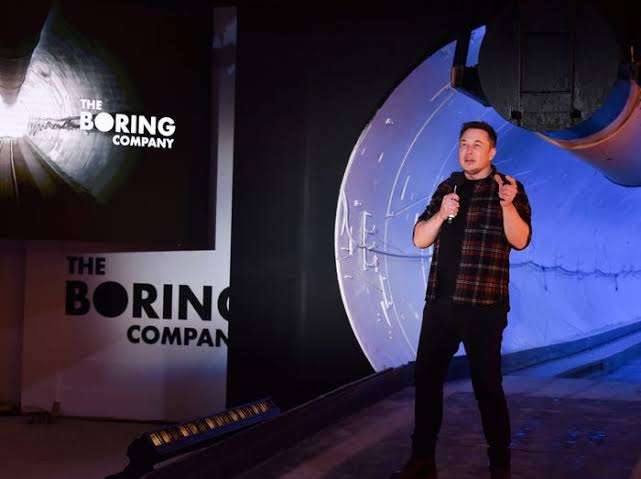
NEW YORK: Elon Musk founded The Boring Company announced Series C funding round of $675 million, led by Vy Capital and Sequoia Capital, with participation from Valor Equity Partners, Founders Fund, 8VC, Craft Ventures, and DFJ Growth.
The financing now values The Boring Company at $5.675 billion.
The funds from the round will be used to significantly increase hiring across engineering, operations, and production to build and scale Loop projects, including Vegas Loop and others, in addition to accelerating the research and development of Prufrock and future products.
“We are also happy to share that a group of leading real estate partners of strategic importance are also joining the round, including Brookfield, Lennar, Tishman Speyer, and Dacra,” a statement noted.
The Boring Company (TBC) was founded by Elon Musk to revolutionize transportation.
The Boring Company Mission
Solve Traffic: To solve the problem of soul-destroying traffic, roads must go 3D. Tunnels minimize usage of valuable surface land and do not conflict with existing transportation systems. A large network of tunnels can alleviate congestion in any city.
Beautify Cities: In many major cities around the world, roads take up an extraordinary proportion of available real estate, often monopolizing an astounding 20% to 30% of space, and up to 60% if you include parking. By placing transportation systems underground, valuable surface land can be used for pedestrians, green spaces, and recreation.
Enable Rapid Point-to-Point Transportation: Loop is an express public transportation system that resembles an underground highway more than a subway system. If a subway or traditional light rail line had 100 stops, a train would typically stop at each station, so the trip between Stop 1 and Stop 100 would be long.
In contrast, Loop passengers travel directly to their destination, anywhere between Stop 1 to Stop 100, without stopping at the intermediate stations. In Las Vegas, for example, if a train stopped at every hotel on Las Vegas Blvd, a trip from the airport to the convention center would take over 25 minutes vs 5 minutes with TBC’s system.
This transportation architecture can be applied intra-city (Loop) and, with increased boring speed, can be applied inter-city (Hyperloop).
TBC creates safe, fast-to-dig, and low-cost transportation, utility, and freight tunnels. TBC has spent the last 5 years building core technologies designed to solve traffic and beautify our cities via Loop and Hyperloop.
Loop is an all-electric, zero-emissions, high-speed underground public transportation system in which passengers are transported to their destination with no intermediate stops. TBC’s first major Loop project, Vegas Loop, is located in Las Vegas Nevada.
On October 20, 2021, the Clark County Commissioners unanimously approved Vegas Loop, a 29-mile tunnel network connecting 51 stations. Vegas Loop is the largest subsurface transportation project in the United States.
Vegas Loop will enable safe, low cost, and high speed transportation throughout Las Vegas, targeting throughput of up to 57,000 passengers per hour. For end users, this means a trip from Harry Reid International Airport to any major destination on the Las Vegas strip in 5 minutes or less with zero stops.
This also translates to less congestion overall on traditional surface roads. Vegas Loop is enabled by TBC’s proprietary tunnel boring machine called Prufrock.
Prufrock is a next generation Tunnel Boring Machine designed to construct mega-infrastructure projects in a matter of weeks instead of years, and at a fraction of the cost. The current iteration of Prufrock, called Prufrock-2, is designed to mine at up to 1 mile/week, meaning a tunnel the length of the Las Vegas strip (approximately 4 miles) can be completed in a month.
Prufrock-3 is designed to be even faster, with the medium term goal of 1/10 human walking speed, or 7 miles/day. In the short term, if each Prufrock-2 mines at 1 mile/week, and TBC produces 1 new Prufrock machine per month, then TBC will be introducing 600 miles/year of capacity. As a point of reference, less than 20 miles of underground subway tunnel has been constructed in the United States in the last 20 years.